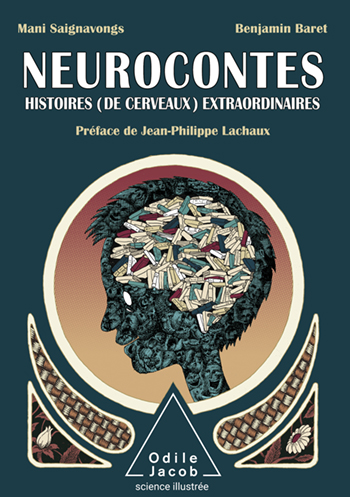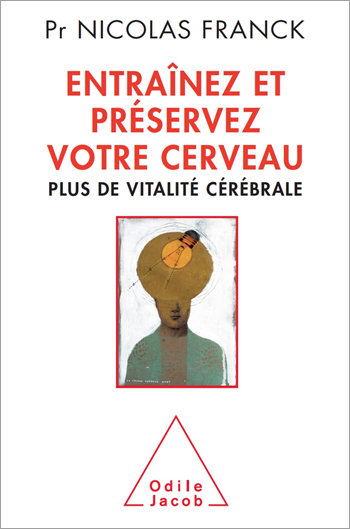Catalog All books

Mani Saignavongs, Benjamin Baret
Extraordinary Stories (about Brains)
A dozen short stories, which can be read individually, depending on the reader’s inclination, each one illuminating an episode in the life of our brain: how it remembers, how it is afraid, how it sees, how it recognizes, how it speaks…

Pierre Bordage, Jean-Paul Demoule, Roland Lehoucq , Jean-Sébastien Steyer
Exquisite Planet
Adapting the form of an ‘Exquisite Corpse’ (a Surrealist technique in which collaborators draw in turn on a sheet of paper, fold it so that only a fragment remains visible, then pass it on to the next collaborator who improvises a new drawing), the four authors of this book have each described a possible planet and imagined the life forms that could have developed there, according to the laws of evolution.

Iannis Roder
Explaining the Shoah and Genocide to Our Children
This book desacralizes the Shoah and shows that though that genocide had specific characteristics, it can be compared to others.

Barry Eichengreen
Exorbitant Privilege The Rise and Fall of the Dollar and the Future of the International Monetary System
As the dollar keeps falling, and in the run-up to the G20 summit, what are the options to reform the international monetary system? Barry Eichengreen urges the creation of a multipolar system
![Exoplanets and Life in the Universe - In Search of Our Origins]](https://s0.odilejacob.fr/couvertures/9782738154712.jpg)
Stéphane Mazevet
Exoplanets and Life in the Universe In Search of Our Origins]
The tale of the great advances of the last half-century up to the discovery of extrasolar planets.

André Brahic, Bradford Smith
Exoplanets Looking for life in the Universe
A brilliant, enthusiastic and accessible work by two of the greatest living astronomers

Pierre Roubertoux
Existe-t-il des gènes du comportement ?
Recent advances in genetic research have had widespread and far-reaching influences in fields as varied as animal and plant biology and medicine. They have also upset some ethical rules. Genetics today is in a triumphant, seductive phase, but its limits are yet to be defined. In this book, the eminent French geneticist Pierre Roubertoux argues that genetics has strayed too far from its justifiable areas of application. Soon, genetics may even be applied to the mind and to consciousness, just as it is already being applied to behaviour by scientists who contend that each type of conduct has its corresponding gene (this is tantamount to saying a specific gene is responsible for each virtue and each vice). Scientists who defend this theory say that they have discovered genes linked to various degrees of activity in mice and flies. Thus, intemperance and gluttony would be linked to a genetic partiality to alcohol, sugar or fats. Pride could be explained by a gene for dominance which has allegedly been found in mice. Greed, too, could be explained by a gene. The supposed existence of an infidelity gene was much in the news three years ago. This is a sound scientific synthesis which will enable readers to grasp the contribution of genetics to our comprehension of who and what we are. It should also help them resist the temptation of reducing everything to genetics. Pierre Roubertoux is a professor at the University of Aix-Marseille and a research fellow at the Institute of Physiological and Cognitive Neuroscience at the Centre National de la Recherche Scientifique (CNRS).

Nicolas Franck
Exercises to Maintain Your Brainpower
Practical exercises to maintain and enhance your mental capacities








